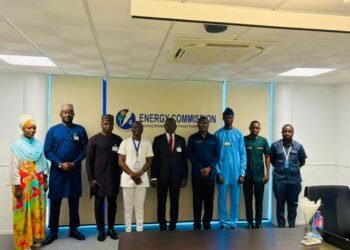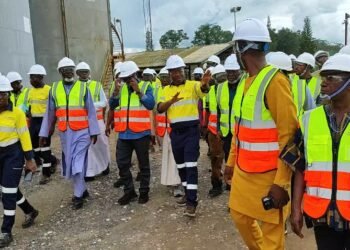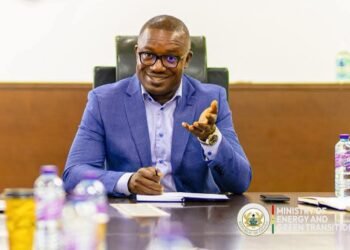Ghana has reaffirmed its leadership in climate resilience and innovative climate finance at the Global Shield Partner Country Roundtable held at 2000 Pennsylvania Avenue, Washington, D.C., positioning itself once again as a trailblazer in the global effort to protect vulnerable economies from the escalating impacts of climate change.
Addressing the high-level session, Hon. Seidu Issifu, Minister of State for Climate Change and Sustainability, underscored Ghana’s pioneering achievement as the first country in the world to operationalize the Global Shield against Climate Risks, a flagship initiative designed to deliver pre-arranged financial protection for climate-vulnerable nations.
“Ghana stands at the frontline of the climate crisis.
“Climate impacts deepen debt vulnerability, and debt limits our ability to invest in resilience. Breaking this cycle is a national priority.”
Hon. Seidu Issifu, Minister of State for Climate Change and Sustainability
The Minister painted a vivid picture of the country’s climate reality, describing how droughts in the north, floods in the south, and erratic rainfall continue to disrupt Ghana’s economy and food systems.

These climate shocks, he noted, often destroy infrastructure, displace entire communities, and destabilize public finances forcing the government to borrow heavily or divert resources from development programmes to emergency recovery efforts.
He explained that Ghana’s participation in the Global Shield represents a strategic shift from reactive crisis response to proactive resilience planning.
“We are no longer waiting for disasters to strike before mobilizing resources.
“Through the Global Shield, we are creating a financial safety net that protects lives, livelihoods, and public finances.”
Hon. Seidu Issifu, Minister of State for Climate Change and Sustainability
From Commitment to Action: Ghana’s Global Shield Success
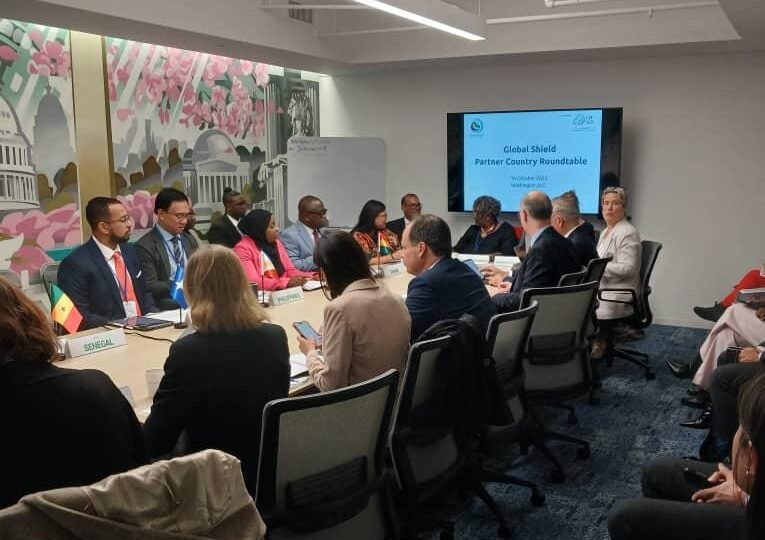
Ghana’s pioneering leadership in the Global Shield process is already producing measurable results.
Minister Issifu revealed that with support from international partners, Ghana had purchased its first parametric drought insurance policy through the African Risk Capacity (ARC) a significant milestone in risk financing.
The policy was triggered in late 2024, leading to payouts totaling nearly US$2.9 million to assist drought-affected farmers in northern Ghana.
The Minister commended the National Disaster Management Authority (NADMO) for ensuring that the funds reached vulnerable communities swiftly and transparently.
“These experiences prove how pre-arranged finance can provide rapid relief while safeguarding fiscal stability and reducing the need for emergency borrowing.”
Hon. Seidu Issifu, Minister of State for Climate Change and Sustainability
According to Hon. Issifu, Ghana’s early success under the Global Shield demonstrates that climate finance can be both effective and efficient when embedded in national systems and delivered through transparent mechanisms.
Expanding Climate Protection and Building Resilience
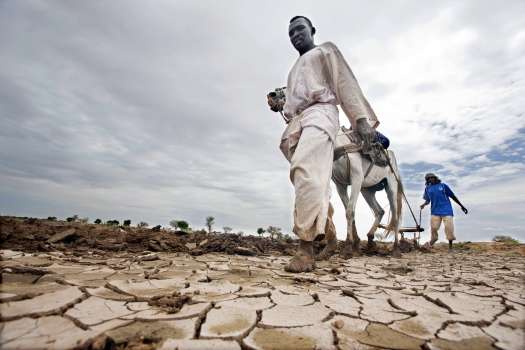
Looking ahead, Ghana is expanding its Global Shield portfolio to include urban flood protection mechanisms and comprehensive climate risk financing tools in collaboration with the Global Shield Solutions Platform and other development partners.
These initiatives form part of Ghana’s broader strategy to enhance climate resilience across critical sectors such as agriculture, infrastructure, and public finance.
Minister Issifu announced that Ghana is currently updating its Climate Prosperity Plan (CPP) a flagship framework of the Climate Vulnerable Forum (CVF) and V20 Group of Finance Ministers to integrate Climate and Disaster Risk Finance and Insurance (CDRFI) strategies as a core component of national planning.
The revised Climate Prosperity Plan is built around three transformative shifts aimed at embedding financial innovation and sustainability into Ghana’s climate agenda.
First, the country is designing a diversified financing mix that combines concessional and commercial capital, carbon revenues, guarantees, and domestic savings to sustain long-term climate investments.
This move comes amid projections that overseas development assistance may decline by up to 21% after 2027, underscoring the need for domestic resource mobilization and blended finance solutions.
Second, Ghana is aligning its climate investments with macro-fiscal stability, achieved under the IMF Extended Credit Facility.
The Minister emphasized that fiscal recovery and climate ambition must move hand in hand. “Our stabilized fiscal framework creates an enabling environment to synchronize economic recovery with climate action,” he said.
Third, the government is integrating climate risk management into its 24-Hour Economy Strategy, a national initiative aimed at stimulating round-the-clock productivity and job creation.
Hon. Issifu said, “Every investment under the 24-hour economy will reduce vulnerability and strengthen competitiveness,” framing climate resilience as an economic and social imperative.
Model for Climate-Resilient Growth

Minister Issifu closed his remarks by reaffirming Ghana’s commitment to fiscal responsibility, financial innovation, and climate ambition, describing the Global Shield as a transformative framework that helps nations shift from dependency on post-disaster aid to proactive financial preparedness.
“The Global Shield is not just a response tool; it is the foundation for long-term economic stability and sustainable growth.
“Ghana is proud to lead by example and stands ready to collaborate with all partners to advance resilience for the most vulnerable.”
Hon. Seidu Issifu, Minister of State for Climate Change and Sustainability
The Global Shield Partner Country Roundtable brought together ministers, finance leaders, and development experts to review the progress of countries implementing climate risk financing under the Global Shield initiative, launched during the 2022 COP27 Climate Conference in Sharm el-Sheikh.
Ghana’s early operationalization of the initiative, delegates noted, reinforces its standing as a leader within the CVF and V20 communities. It also signals the growing maturity of African countries in developing homegrown, data-driven solutions to manage climate and disaster risks.
As the Minister concluded, he called on global partners to deepen collaboration and scale up access to climate finance, emphasizing that Africa’s development depends on resilience, not reaction.
READ ALSO: BoG’s $1.15bn FX Injection Sparks Clash with IMF and World Bank Over Cedi Stabilization




